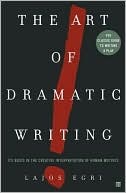Category Books
- Fiction Books & Literature
- Graphic Novels
- Horror
- Mystery & Crime
- Poetry
- Romance Books
- Science Fiction & Fantasy
- Thrillers
- Westerns
- Ages 0-2
- Ages 3-5
- Ages 6-8
- Ages 9-12
- Teens
- Children's Books
- African Americans
- Antiques & Collectibles
- Art, Architecture & Photography
- Bibles & Bible Studies
- Biography
- Business Books
- Christianity
- Computer Books & Technology Books
- Cookbooks, Food & Wine
- Crafts & Hobbies Books
- Education & Teaching
- Engineering
- Entertainment
- Foreign Languages
- Game Books
- Gay & Lesbian
- Health Books, Diet & Fitness Books
- History
- Home & Garden
- Humor Books
- Judaism & Judaica
- Law
- Medical Books
- New Age & Spirituality
- Nonfiction
- Parenting & Family
- Pets
- Philosophy
- Political Books & Current Events Books
- Psychology & Psychotherapy
- Reference
- Religion Books
- Science & Nature
- Self Improvement
- Sex & Relationships
- Social Sciences
- Sports & Adventure
- Study Guides & Test Prep
- Travel
- True Crime
- Weddings
- Women's Studies
Art Of Dramatic Writing »

Authors: Lajos Egri, Gilbert Miller
ISBN-13: 9780671213329, ISBN-10: 0671213326
Format: Paperback
Publisher: Simon & Schuster Adult Publishing Group
Date Published: February 1972
Edition: (Non-applicable)
Author Biography: Lajos Egri
Lajos Egri (1888-1967) was born in Hungary and founded the Egri School of Writing in New York City in the 1930s. In addition to writing books, he spent his life writing and directing plays in both the United States and Europe, as well as writing screenplays for the film industry.
Book Synopsis
Among the many "how-to" playwriting books that have appeared over the years, there have been few that attempt to analyze the mysteries of play construction. Lajos Egri's classic, The Art of Dramatic Writing, does just that, with instruction that can be applied equally well to a short story, novel, or screenplay.
Examining a play from the inside out, Egri starts with the heart of any drama: its characters. All good dramatic writing hinges on people and their relationships, which serve to move the story forward and give it life, as well as an understanding of human motives -- why people act the way that they do. Using examples from everything from William Shakespeare's Romeo and Juliet to Henrik Ibsen's A Doll's House, Egri shows how it is essential for the author to have a basic premise -- a thesis, demonstrated in terms of human behavior -- and to develop the dramatic conflict on the basis of that behavior.
Using Egri's ABCs of premise, character, and conflict, The Art of Dramatic Writing is a direct, jargon-free approach to the problem of achieving truth in writing.
Table of Contents
CONTENTS
INTRODUCTION
FOREWORD
PREFACE
I PREMISE
II CHARACTER
1. The Bone Structure
2. Environment
3. The Dialectical Approach
4. Character Growth
5. Strength of Will in a Character
6. Plot or Character -- Which?
7. Characters Plotting Their Own Play
8. Pivotal Character
9. The Antagonist
10. Orchestration
11. Unity of Opposites
III CONFLICT
1. Origin of Action
2. Cause and Effect
3. Static
4. Jumping
5. Rising
6. Movement
7. Foreshadowing Conflict
8. Point of Attack
9. Transition
10. Crisis, Climax, Resolution
IV GENERAL
1. Obligatory Scene
2. Exposition
3. Dialogue
4. Experimentation
5. The Timeliness of a Play
6. Entrances and Exits
7. Why Are Some Bad Plays Successful?
8. Melodrama
9. On Genius
10. What Is Art? -- A Dialogue
11. When You Write a Play
12. How to Get Ideas
13. Writing for Television
14. Conclusion
APPENDIX A. Plays Analyzed
APPENDIX B. How to Market Your Play
APPENDIX C. Long Runs on Broadway
INDEX
Subjects
 Theater
Theater  Playwriting
PlaywritingReference
 Writing
Writing  Playwriting & Screenwriting
Playwriting & ScreenwritingNonfiction
 Entertainment
Entertainment  Theater
TheaterNonfiction
 Reference
Reference  Writing
Writing
